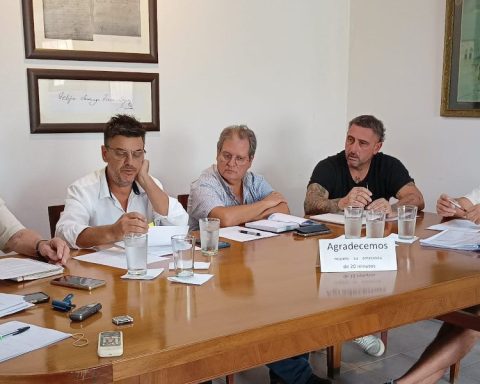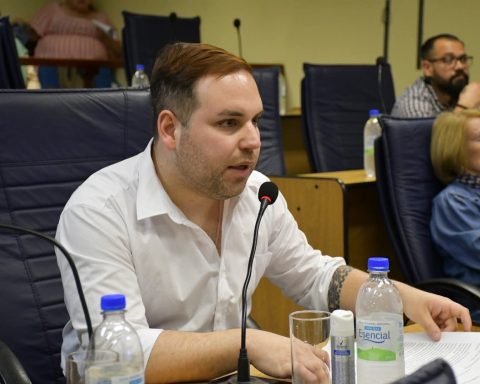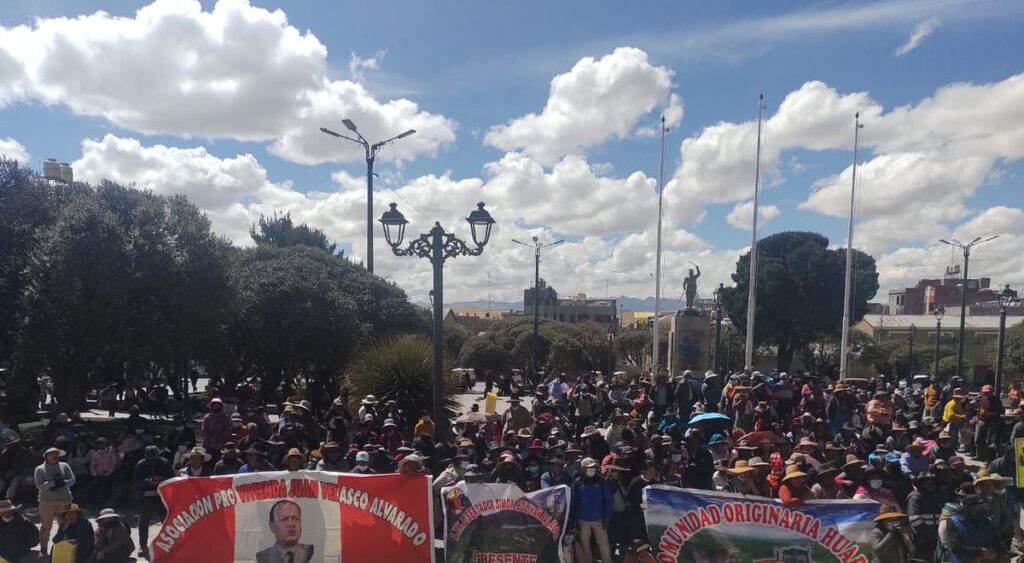Days ago, within the framework of the National Day of Micro, Small and Medium Enterprises (MSMEs), an event was held in the Executive Tower.
There, the importance of the sector and the government’s commitment to a policy to support the development of MSMEs were highlighted.
The sector “woke up”
Álvaro Delgado, secretary of the Presidency; Beatriz Argimón, Vice President of the Republic; and Azucena Arbeleche, Minister of Economy and Finance. In addition, Rodrigo Ferrés, Pro-Secretary of the Presidency; Pablo Mieres, Minister of Labor and Social Security (MTSS); and Carmen Sánchez, president of the National Development Agency (ANDE).
Delgado said that the sector “woke up” after the pandemic and considered the advances and motivation achieved by companies to be important. In addition, he assured that the government has a commitment to MSMEs and a policy to support their growth, given that “they are key to the development of our country.”
On the other hand, Argimón highlighted ANDE’s role in the process of “promoting decentralization”, which made it possible to attend to different “realities and needs” in the interior of the country. Meanwhile, Arbeleche commented that MSMEs make up the “engine of the national economy” with a strong representation in the activity and that the government proposed supporting the operation at the beginning of the pandemic. The approach is to support them through various legal instruments and measures, he added.
On the other hand, Sánchez reported that since the beginning of the health emergency, the Executive Branch has provided more than 65 million dollars and ANDE has guaranteed more than 588 million dollars in loans. Likewise, he expressed that the sector is made up of some 197,000 companies that are responsible for two out of every three jobs that are employed. In particular, in the interior of the country, they generate 77% of job opportunities.
What is an MSME?
The categorization of an economic unit as micro, small or medium-sized company is determined in Uruguay, based on the number of employed personnel, together with its annual turnover. Thus, microenterprises are those that employ no more than four people and whose annual sales do not exceed the equivalent of two million indexed units.
Small businesses are those that employ no more than nineteen people and whose annual sales do not exceed the equivalent of ten million indexed units. And medium-sized companies are those that employ no more than ninety-nine people and whose annual sales do not exceed the equivalent of seventy-five million indexed units.
According to the latest published data from BPS-listed entities, there are 137,895 enterprises that employ personnel. Of these, only 1,276 companies employ more than one hundred people. In other words, micpymes represent 99% of the companies in our country and 70% of the total are micro-enterprises.
employment drivers
In our country, just over six out of ten jobs contributing to social security are generated by micpymes. Moreover, almost 40% of jobs in Uruguay are generated in micro and small companies.
However, due to their nature, this type of company presents high levels of economic vulnerability and, therefore, their labor sources are classified as vulnerable. Something similar happens internationally.
For example, in Spain 65% of employment is generated by the SME sector and the world average is 50%. Local public policies of financial analgesia are necessary in this exceptional situation to avoid closures.
Various state agencies have been implementing a battery of support measures, from Uruguay XXI to the National Development Agency (ANDE), passing through suspension of maturities and tax exemptions that will imply certain resignations for the DGI and BPS, and some oxygen for downtrodden SMEs.
Everything that simplifies bureaucracy and paperwork, not only at the level of public bodies but also of large private service providers, the micpyme will appreciate it. It should be remembered that if these procedures are designed without the necessary empathy, the fixed or opportunity cost of going through them will be relatively more expensive for a micpyme than for large enterprises.
At the particular management level, the challenges are multiple. It is certainly complex to try to think in terms of future strategy, when the emergency questions the existence of the enterprises. However, those resilient ones who managed to overcome the situation must undoubtedly begin with the exercise of projecting themselves into the future. The accelerated incorporation of technology in the processes, digital sales channels, deepening in the use of electronic means of payment, internationalization with regional markets in sight, short and long-term financing structure, are all elements that today more than ever should be be on the table. As a society, we must have the deep conviction that healthy MSMEs and ecosystems of active entrepreneurs will strengthen the long-awaited economic recovery, but above all, the creation of employment sources and development opportunities.
Juan Prandi


















